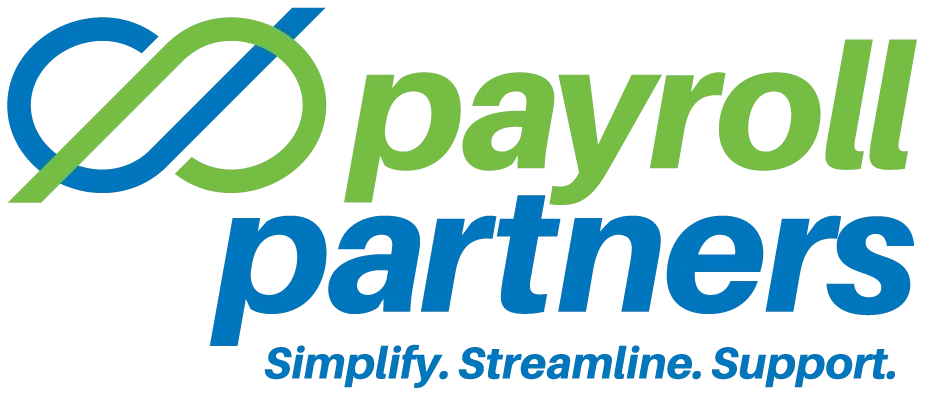As an employer, part of operating your business is complying with employment tax jurisdictions, making timely tax payments and filing the correct reports and returns. Depending on which state you are operating in, there may also be state requirements.
To ensure that your payroll tax responsibilities are handled correctly, you must:
-
- Make sure that federal, state, and local taxes are paid and reported to the correct tax agency
- Report the correct income, withheld amounts, and amounts paid to employees/contractors
- Maintain the required federal, state, and local tax records
Be aware that federal tax deposits and federal tax returns are filed separately. Tax deposits are made on a periodic basis, whereas tax returns are filed on a quarterly and/or annual basis.
Federal tax deposits must be made electronically by one of the methods listed below:
-
- Electronic Federal Tax Payment System (EFTPS) is free to use and provided by the Treasury Department
- Set up an Automated Clearing House (ACH) credit payment through your financial institution
- Hire a tax professional or payroll service provider to make the payments on your behalf
The timeliness of these deposits is incredibly important. Failing to make a deposit when it is due will result in a penalty. The deposit schedule for employment taxes may differ from business to business, depending on which one the IRS determines you should use.
Annual Deposits
-
- If you are a small business, you may be able to file an annual payroll tax return using form 944 Employer’s Annual Federal Tax Return.
- Before filing this type of return, you must have permission from the IRS, as this is an “opt-in” program and must meet certain requirements before being approved.
Quarterly Deposits
-
- This type of deposit applies to small businesses whose employer taxes from the current quarter or the preceding quarter are less than $2,500, using a Form 941 Employer’s Quarterly Federal Tax Return.
- If your taxes are more than $2,500, you will be put on either a monthly or semiweekly schedule. This is determined by the IRS by what is called a “look back period.”
Monthly Deposits
-
- With monthly depositing, taxes withheld on wages paid during a calendar month must be paid by the 15th of the following month. Example: Amounts withheld or paid on April wages must be deposited by May 15th.
Semi-Weekly Deposits
-
- You must deposit the taxes associated with wages paid on Wednesday, Thursday, or Friday by the following Wednesday.
- You must deposit the taxes associated with wages paid on Saturday, Sunday, Monday, or Tuesday by the following Friday.
Next Day Deposits
-
- If you accumulate $100,000 or more in taxes associated with wages paid on any day, you must deposit taxes by the next business day, whether you’re a monthly or semiweekly schedule depositor.
As a business owner, you will have to make tax payments and file returns for both income taxes and unemployment taxes. The following are general guidelines for those payments and returns.
Federal unemployment (FUTA) tax deposits and returns:
-
- They must be deposited on a quarterly basis if your tax liability is more than $500. These deposits must be made by the last day of the month that follows the end of the quarter.
- If your FUTA tax liability is less than $500, then you do not have to deposit it, but you may carry it to your FUTA liability for the next quarter.
- The FUTA tax return is an annual return, filed with Form 940 (Employer’s Annual Federal Unemployment Tax Return) and is due January 31 following the end of a calendar year.
State unemployment (SUTA or SUI) tax deposits and returns:
-
- SUTA tax deposits and returns may vary by state, but deposits are usually made on a quarterly basis and must be made by the last day of the month that follows the end of the quarter.
- SUTA tax returns are usually filed on a quarterly basis to the appropriate state agency and is usually due by the last day of the month following the end of the quarter.
Income and FICA tax returns:
-
- Most employers will file Form 941 Employer’s Quarterly Federal Tax Return (as mentioned above) to report withheld federal income taxes and FICA taxes withheld and paid in a calendar quarter.
- The deadline for filing Form 941 is the last day of the first month after a quarter ends.
The requirements for filing and paying payroll taxes can be confusing and difficult to navigate and unfortunately, the penalties for noncompliance can be severe. Hiring an outside company that specializes in payroll services and payroll tax administration can be a tremendous asset for your business. Payroll Partners can save you from this stress. Contact us today so we can address your payroll tax requirements and remove this burden to free up your time so you can concentrate on running your business.
April Reeves, Social Media Editor
*Payroll Partners is committed to helping clients stay informed about payroll, tax and human resource news, developments and current events. This article is intended to provide readers with general information on payroll matters. The article does not constitute, and should not be treated as professional advice regarding the use of any particular payroll practice. All efforts have been made to assure the accuracy of the information. Payroll Partners does not assume responsibility for any individual’s reliance upon the information provided in the article. Readers should independently verify all information before applying it to a particular fact situation, and should independently determine the impact of any particular payroll practice. If you are seeking legal advice, you are encouraged to consult an attorney*

